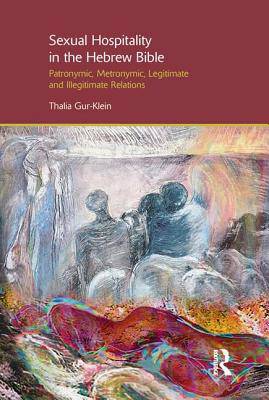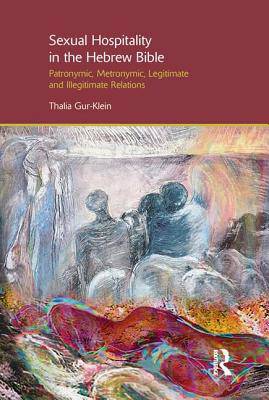
- Retrait gratuit dans votre magasin Club
- 7.000.000 titres dans notre catalogue
- Payer en toute sécurité
- Toujours un magasin près de chez vous
- Retrait gratuit dans votre magasin Club
- 7.000.000 titres dans notre catalogue
- Payer en toute sécurité
- Toujours un magasin près de chez vous
Sexual Hospitality in the Hebrew Bible
Patronymic, Metronymic, Legitimate and Illegitimate Relations
Thalia Gur-KleinDescription
A woman's life in the ancient world was constrained by her social and economic status. As a daughter she was firmly under the aegis of her father and brothers, who would later allocate the woman to another man as his wife. The power of fathers and husbands extended to using their wives and daughters as sexual gifts to gain favour. Yet, alongside this, woman had certain socio-economic rights - notably concerning inheritance and property - which they could use to protect themselves.
Sexual Hospitality in the Hebrew Bible examines sacred sexuality and ritual fecundity from patronymic marriage - where the husband claims exclusive rights over his wife's sexuality and attributes her offspring to his line and kin - to metronymic conjugal systems which allow a woman to remain in her home where the male consort joins her and her kin. Ranging across abstention, promiscuity, and holy offering, the sexual lives of women in biblical times reveal not only restriction but also female agency and resistance.
Spécifications
Parties prenantes
- Auteur(s) :
- Editeur:
Contenu
- Nombre de pages :
- 336
- Langue:
- Anglais
- Collection :
Caractéristiques
- EAN:
- 9781845531065
- Date de parution :
- 31-12-12
- Format:
- Livre relié
- Format numérique:
- Genaaid
- Dimensions :
- 156 mm x 233 mm
- Poids :
- 452 g







